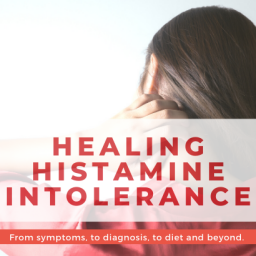
Food sensitivity testing is one of the tools Naturopathic Doctors use to assess health in our patients. In Naturopathic Medicine our goal is to find the cause of symptoms of illness and disease. In a previous article, Understanding Food Sensitivities, I discussed what food sensitivities are and the importance of testing. In this article we will look at the options for food sensitivity testing.
Testing for Food Sensitivities
There are several methods of testing for food sensitivities.
-
Elimination Diet
 Most people attempt a food elimination diet as an initial way of self-diagnosing food sensitivities. A hypoallergenic, anti-inflammatory diet is consumed for a set period of time (usually 6-12 weeks). All the most common allergenic foods are eliminated and the patient self-monitors for improvements in symptoms. Foods are re-introduced one at a time after the initial period of restriction. If symptoms arise on reintroducing the food then a food sensitivity is suspected.
Most people attempt a food elimination diet as an initial way of self-diagnosing food sensitivities. A hypoallergenic, anti-inflammatory diet is consumed for a set period of time (usually 6-12 weeks). All the most common allergenic foods are eliminated and the patient self-monitors for improvements in symptoms. Foods are re-introduced one at a time after the initial period of restriction. If symptoms arise on reintroducing the food then a food sensitivity is suspected.
Advantages: Promotes a general sense of well-being, high level of patient involvement in their health.
Disadvantages: Does not eliminate all potential sources of sensitizing foods. Requires compliance with a restricted diet for a period of time. Can be expensive (the cost of egg-free, gluten-free, dairy-free, organic food adds up quickly).
-
Electrodermal Food Allergy Testing
 A machine is held by the patient and the electrical frequencies of food are tested against the body’s reaction to those foods (the brain interprets the electrical signal and elicits a skin resistance response which is read by the machine).
A machine is held by the patient and the electrical frequencies of food are tested against the body’s reaction to those foods (the brain interprets the electrical signal and elicits a skin resistance response which is read by the machine).
Advantages: Painless. Children can be tested easily. A clear outline of food sensitivities and the severity of sensitivities is given. Foods do not have to have been consumed recently for valid results (although accuracy is increased if they have been consumed recently or are consumed frequently).
Disadvantages: Moderately expensive. Some practitioners do not accept the validity of the testing method. Test accuracy relies on technician proficiency.
-
IgG Food Sensitivity Testing
A blood test is analyzed by a specialized laboratory to assess for IgG (immunoglobulin G – one of two antibodies produced during an sensitivity response). IgG antibodies are produced for several hours or days after exposure to an allergen (which is one of the reasons why some symptoms of food sensitivity don’t occur immediately after eating a food).
Advantages: Gives a clear outline of food sensitivities and the severity of the sensitivity. Tests for a wide variety of commonly consumed foods (from 120 to 300 foods). A simple blood draw is done at a local Life Labs. Antihistamine use is permitted during the test.
Disadvantages: Can be expensive. Food must be consumed within 3 months prior to the test for an accurate reading. Immunosuppressant drugs (prednisone, chloroquine and azothioprine) must not be used during the testing.
In my Toronto clinic I most commonly use the IgG food sensitivity blood test to assess for food sensitivities. Clinically I have found this test to accurately identify sensitivities and result a corresponding improvement in patient symptoms. I support my patient’s ability to choose whatever testing they find to be ideal and can support that decision making process and help to develop a treatment plan, whatever the testing method selected.
Why is this testing different than that provided by my MD or allergist?
 Most severe, immediate allergy symptoms are a result of IgE (immunoglobulin E) – responsible for Type I hypersensitivity reactions in which a food antigen attaches to an IgE antibody and results in an immediate, and potentially life-threatening, hypersensitivity reaction. Because of this many MDs have limited their testing to this class of immunoglobulins.
Most severe, immediate allergy symptoms are a result of IgE (immunoglobulin E) – responsible for Type I hypersensitivity reactions in which a food antigen attaches to an IgE antibody and results in an immediate, and potentially life-threatening, hypersensitivity reaction. Because of this many MDs have limited their testing to this class of immunoglobulins.
There is considerable evidence for IgE testing, but there is also abundant evidence that IgG(immunoglobulin G) is an important marker for food sensitivity testing. IgG and IgG-complexes are involved in 80% of all food allergy or sensitivity reactions. IgG is involved in delayed immune responses which are more common in food intolerance.
How can I learn more about food allergy testing?
At my Toronto clinics, I offer Rocky Mountain Analytical’s IgG Food Sensitivity test (RMA FST). The blood draw is done through your local Life Labs. You can read more about the RMA FST test here. You can also book a complimentary 15 minute consult with me to discuss whether or not food sensitivity testing can help you achieve your goals for a balanced, healthy diet.
Disclaimer
The advice provided in this article is for informational purposes only. It is meant to augment and not replace consultation with a licensed health care provider. Consultation with a Naturopathic Doctor or other primary care provider is recommended for anyone suffering from a health problem.

















[…] food additives. Consuming foods that we have a sensitivity to (determined by elimination diets or food sensitivity testing) creates a state of inflammation both in the digestive tract and throughout the body. This state […]
Great info and insights 🙂 Thanks for writing this article. It is well written and is really current.Thank you.
I just got the results from my 96 Food lgG Panel. I have to say if anything, I wasted 200.00, and I will explain why. On this form it showed that I am fine when eating peanuts, wrong! There were many other items on this list that claimed the same. According to the findings in this test, right now, all I would be able to consume would be cardboard. Your body knows what it can and cannot eat. I think this test is a money maker.
I’m sorry that your experience with the 96 Food IgG Panel has been negative. There are many other reasons why your body may be reacting to peanuts – an IgE mediated allergy, enzyme insufficiencies, diverticulitis and others. Food sensitivity panels are just one piece of a larger puzzle in determining your obstacles to health. I hope your Naturopathic Doctor discussed this with you and helped you to interpret the results in a more favourable light.
Yours in health ~ Lisa
[…] you can read my article comparing the three most common methods of food sensitivity testing here. Rocky Mountain Analytical provides information on the IgG food sensitivity test here. You can also […]
[…] person with an autoimmune condition, including Hashimoto’s should seriously consider having an IgG based food sensitivity panel done to identify their own sensitivities. Understanding the action of your immune system in your […]
I am interested in getting the blood food sensitivity testing done and am wondering if you could recommend a lab in Canada that will send me the kit directly without having to go to a Dr. to get the blood drawn, and then sending the results directly back to me.
I don’t know of any Canadian labs that provide direct testing to consumers. There are some in the US, but I’m not sure if they ship to Canada.
I think the benefit of having a Naturopathic Doctor discuss the results, and how to heal your digestive tract after testing, is well worth the investment!
~Dr. Lisa
[…] best advice we can give is to recommend a food sensitivity test or food journal. Each person will experience different reactions to foods. Something that bothers […]